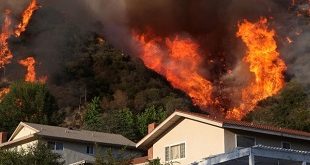
By Paul Kagame
We have the power of resilience
As we speak, we are in a struggle where we want to determine for ourselves what we want to be, and not allowing someone else to decide for us.
It is not an isolated case, it is one of many cases that remind us how hard it is to travel on that journey of self-determination, to make choices for our future, of who we want to become.
We have one of our senior government officials; the head of our security and intelligence organisation, a general, a freedom fighter; somebody who fought with us to make this country what it has become. He was picked off the street in London. An official, going to perform duties that fall in his responsibilities, is arrested as he is boarding a plane to come back home.
From that we are told, there was a request from Spain that this person is wanted in Spain and therefore should be extradited to Spain for whatever crimes Spain says they want him for.
We are also told that UK has a legal obligation to hand this person over to Spain and it doesn’t matter what facts, what circumstances, and what context; he must be handed over. It is an obligation. But that is very selective.
Because UK has another legal obligation. The legal obligation is: this is an official of the State of Rwanda, an official of a people who respect themselves, who don’t offend others. A people who want to decide what they become. Not UK, not France, not Spain, deciding what they become. It will never happen.
Just picked a security chief on the street like one of those thugs. According to them, there is no legal obligation they have towards Rwanda for their official, somebody with diplomatic status; because there is this other obligation they have towards Spain.
But look at the depth of this matter. First, it is France, then Spain, now it is the UK. I don’t know who is coming next. All directed to inconvenience, to destabilise, to just show the absolute contempt they have for Rwanda and for Africa. It is absolute contempt.
Something African, something Rwandan doesn’t feature anywhere in their considerations when it comes to making choices. It’s not the first time and it’s not going to be the last time.
But any decent human being, any decent Rwandan, any decent African, even any decent person from those countries, cannot accept this. Absolutely not.
In fact, sometimes I feel like being cynical about it. But let me put it this way: I think it is good, I really feel happy that of all people, it happens to us, to Rwandans. Maybe if it had happened somewhere else, it would just disappear. But here, it is happening to the right people. The right people who want to stand up to it and who will always stand up to it.
I am happy that such people pick on us, they pick on Rwanda to be the one they treat like this. We are up to the job in many ways.
We don’t have the power of wealth, or military strength, of technology, of all kind of things these countries have pride in. But we have a couple of things. We have the power of the spirit.
We have the power of being underrated. The power that comes from anger of being held in contempt. The power that comes from the anger of being insulted. The power that comes from the anger of being pushed against the wall. Because when that happens and when we are left with nothing else, building on that spirit, we come back in full strength.
We have the power of resilience. We have the power that derives from the anger of the historical attempt to wipe us off the surface of the earth, and we refused to go.
Those who want or were behind or associated with the genocide that happened here in Rwanda, did not reach the point they wanted to reach. Not because they changed their mind on the way, or because they forgave us. But because they failed to achieve it. They won’t achieve it now. They won’t achieve it today.
People may think they can put us down, but they’ll never take us out. We are a decent people. People of enough strength to not accept this rubbish of injustice.
I kept reading comments in social media, and I happened to read something about somebody, a really useless African but who’s held in high esteem, writing that, you see, it is right for these people to be arresting Karenzi, because it is time to do justice, that the victims of genocide got justice, now it is the time for justice for others.
What that means to me, the history of my country isn’t the history we read in books, it’s the history we have lived.
The question in my mind, was so really the victims of genocide got justice? But is it what the victims, those people who were targeted in genocide, before genocide happened, were thinking about? Did they say, let genocide happen and we will get justice?
In other words, it was okay to lose one million people, as long as there was going to be something that looked like justice at the end of it. This person who works for human rights who was saying that must have gone nuts!
We did not need genocide here in Rwanda. If he wants it for other people, let him recommend that. We did not want it. It’s as if Rwandans chose justice after they have got genocide. But have they even got justice?
Every single day, they are all over the place chasing, hunting down people who actually fought, sacrificed and stopped genocide. They protect and take pride in associating with those who actually perpetuated it. They do.
Those capitals are full of people who carried out genocide here in Rwanda. If you are saying those who stopped it should be tried for stopping it, or for any mistakes some individuals could have made during that time, and you equate it to genocide, well again, it is an issue of being selective.
Why don’t they look a little bit back in their history? What the history would have suggested would have been to try those people who stopped those who were carrying out the Holocaust. In Nuremberg, they should have tried the Allied forces that stopped the Holocaust, they should have charged and tried those who fought the Nazis. Why didn’t it happen? Because it’s not an African situation.
Today, all these stories you hear about, in fact is what they don’t say out there. Spain wants somebody from Rwanda, for anything. Spain has never asked Rwanda to try or discuss whatever issues they need to talk about relating to whatever they have in mind about justice. It is actually Rwanda that has several times gone to Spain and asked them: what is your problem? It’s like they don’t have to say anything. They will wait until somebody is out, or they create these cases to actually inconvenience people, so that they don’t travel anywhere to do their business.
These judges and others who were sworn in today can tell me, they are learned people in matters of law: I want to understand under what circumstances the laws of countries like ours, or others, become completely subordinate to the laws of other countries, to the point that other countries will say “we think somebody did something in your country, we want them here to answer”?
And sometimes these cases are decided on by village judges. Village judges. Like you have one in our villages. Judges over there operating on their own, summoning and saying to a country that they want their Minister. They wag their finger. That tells a story.
We have discussed this matter between Europe and Africa in our last meeting of Head of States and Government in Brussels – this matter came up very well. It has been discussed at an AU summit. But every time they decide to shelve it because they want this kind of situation to go on and on forever.
It is history repeating itself in a different form. It is a continuation of slavery, of colonialism, of arrogance, bigotry and telling the Africans, wagging a finger at them and saying “this is where you belong”. We are no longer the African that belongs there.
But there are Africans who belong there. Even among us. Even those who sit and drink and live with us. And these are the Africans preferred by those countries because in the end they serve their interests.
One typical example, in fact, is even associated with this case. We have Rwandans who are out there who exiled themselves under all sorts of claims. But all of them have cases to answer here. All of them. Not a single one doesn’t have a case to answer here. Not a single one of them. If you check their records, some ran away, they used to be in the army and they committed a series of crimes. They are there, on record. Others used to work in the places you know.
One of them used to work for me. And the only thing he can talk about, the only thing he can take pride in, is having worked for me. That’s the only thing. Nothing else. And he ran away twice. He deserted and asked for mercy to come back to work. We allowed him to come back then he worked for some time, he got into another mess and he ran away again. But when he is out there, this is the man Himbara, you hear of him every day, even yesterday he was on radio talking about this case.
Of course these are the people these countries find very important to associate with. And you know the reason? Among them, you have seen this BBC documentary, the so-called ‘Untold Story’. What they are talking about is not the untold story.
The untold story is what underlies that documentary. The untold story is that these countries and the people who are behind it want to change the narrative into one that lacks the actual story of what happened in Rwanda that they were so deeply involved in.
 The Independent Uganda: You get the Truth we Pay the Price
The Independent Uganda: You get the Truth we Pay the Price


